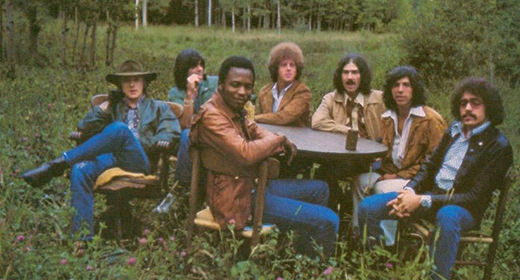by Jonathan Robinson: Ron and Patty had only one big problem in their twenty-five year marriage.

Unfortunately, because they never resolved how to handle the “chores” issue, they were constantly bickering. Despite twenty-five years of heated discussions, they hadn’t made much progress. Like most couples with a thorny issue, they were still trying to decide whose problem it was, and the mere fact that they were still arguing about it made them even madder. At least once a week Ron and Patty would each present “evidence” to indicate that they were the one doing most of the work around the house. Secretly, they each hoped their partner would finally realize the errors of their ways, and apologize for their inconsiderateness. Of course, this never happened. There attempts to show who had been doing more work around the house was a pointless waste of time.
Many couples fall into the same trap as Ron and Patty because they never actually solve any of their problems. As a result they have to keep dealing with the same old issues–as well as all the new ones that inevitably arise. Before they realize it, couples can feel buried by an avalanche of problems. The way to sidestep this trap is to learn how to solve problems–once and for all, no matter what the issue is. Couples who can master this skill find they can create a lot more love and a lot less conflict in their relationships. Of course, the importance of solving interpersonal problems is not restricted to the arena of intimate relationships. This skill can also make a world of difference at work, with friends, and when dealing with one’s family.
To solve problems in your relationships with other people, first begin by stating your positive reason why you want to solve a specific issue. For example, in Ron and Patty’s case, something like the following could be said: “Honey, I’d like to talk to you about the issue we have about chores. I don’t want to make you wrong. I just want to work out something that would be agreeable to both of us. I’d really like to avoid arguments and instead spend more time feeling intimate with each other. Would you be willing to talk about it so we could finally resolve this issue?” When you tell people the ultimate positive reason why you want to solve a problem with them, they’ll tend to be receptive to listening to you.
After presenting your positive reason for talking to someone, don’t fall into the trap of presenting your “side” of the issue. Instead, begin by asking him or her The Amazing Problem Solving Question. The power of this question is that it gently directs people to think in ways that are helpful for solving the issue at hand. In addition, by asking the person you’re dealing with to solve the problem, it prevents the two of you from bickering, and establishes your sincerity in looking for a solution. The question is, “Considering my needs and desires with this issue, what do you propose might be a compromise that would work for both of us?”
There are three possibilities of what someone will do when asked this question. First, they may present a solution that you find agreeable. If they do, tell them how great of an idea it is, write the solution down on paper, and keep your end of the bargain. If he or she says they don’t have any ideas, or if their ideas are not acceptable to you, you can say, “Those are interesting suggestions you made. Would you be open to hearing some ideas I have that might work for both of us?” Since you let them go first, they’ll feel obliged now to listen to your suggestions. When proposing possible solutions, try to present at least a couple of specific ideas. That way, they’ll see that you’re not dead set on a specific solution, and it will create a better atmosphere for compromise.
If you or the person you’re talking with fall back into the blame game, ask the problem solving question again. Keep steering yourself back towards exploring solutions that are acceptable to both of you. You might ask him or her, “What is most important to you about (the issue at hand), or what most bothers you about (the problem)?” The more you understand each other, the more likely you’ll be able to come up with agreements that truly work.
Sometimes it can be difficult to resolve an issue simply because people are afraid to agree to something that may not work long term. To avoid this problem, you can both agree to a specific solution for a “trial period” to see if it truly is acceptable. For example, in the case of Ron and Patty, they each agreed to do certain specific chores around the house each week. If one person failed to do a particular chore, they had to pay their partner $10 for each job that was undone. They agreed to try this approach for a month, and then discuss if they wanted to make any changes. At the end of the month, they both felt happy with how it was going, so they made the agreement permanent.
Recently, I had a problem with a printer who was always late in getting jobs done for me. Rather than blame him and make him wrong, I told him, “Joe, I value our relationship, and I want to continue to do business with you. I want to talk about something that’s bothering me so we can clear it up and continue to work together. Is now a good time?” Joe was agreeable to talking. I briefly mentioned the issue of how my printing jobs weren’t being done on time. Then I asked him, “Considering my needs in this situation, what do you propose might be a good compromise that might work better for both of us?” When Joe said he didn’t know what he could do, I asked him if I could suggest a couple of ideas—and he agreed. Eventually, we negotiated that for every day my printing jobs were late, he’d deduct 10 percent off my bill. I was happy, and he was happy. Rather than end our relationship, in just a couple of minutes we worked things out to everyone’s satisfaction.
What problems repeatedly arise in your intimate relationship—or your relationships with certain people at work? I encourage you to tell each of these people the positive reason why you’d like to solve this difficulty, and then proceed to the problem solving question. If you listen to their ideas with sensitivity and respect, they’ll listen to you. Keep coming up with compromises until you find a solution you’d both be willing to try—at least for a week. Once you’ve tried something, you’ll have more information about what worked, and if it didn’t, how you might be able to change things so it will work the next time. The Amazing Problem Solving Question can be a lifesaver in your relationships with people, and it costs a lot less than seeing a marriage counselor, ending a friendship, or having to find a new job.
 Jonathan Robinson is a psychotherapist, best-selling author of 12 books, and a professional speaker from Northern California. Mr. Robinson has made numerous appearances on the Oprah show, as well as many other national TV talk shows, and articles about him have appeared in USA Today, Newsweek and The Los Angeles Times. For the past 30 years he has spoken to dozens of Fortune 500 companies including Google, Microsoft, Dell Computer, Coca-Cola, and Fed-Ex.
Jonathan Robinson is a psychotherapist, best-selling author of 12 books, and a professional speaker from Northern California. Mr. Robinson has made numerous appearances on the Oprah show, as well as many other national TV talk shows, and articles about him have appeared in USA Today, Newsweek and The Los Angeles Times. For the past 30 years he has spoken to dozens of Fortune 500 companies including Google, Microsoft, Dell Computer, Coca-Cola, and Fed-Ex.
Jonathan has written several bestseller books including, “The Complete Idiot’s Guide to Awakening Your Spirituality;” “The Experience of God,” “The Little Book of Big Questions;” and “Communication Miracles for Couples.” His latest book is called, “More Love, Less Conflict.” Jonathan also co-hosts the podcast “Awareness Explorers” with author Brian Tom O’Connor. This podcast focuses on revealing the easiest and most powerful practices for directly awakening to one’s true nature.
Through TV, live lectures and radio, Mr. Robinson has reached over 100 million people around the world. He is known for providing his audiences with immediately useful information presented in a fun and entertaining manner.









































